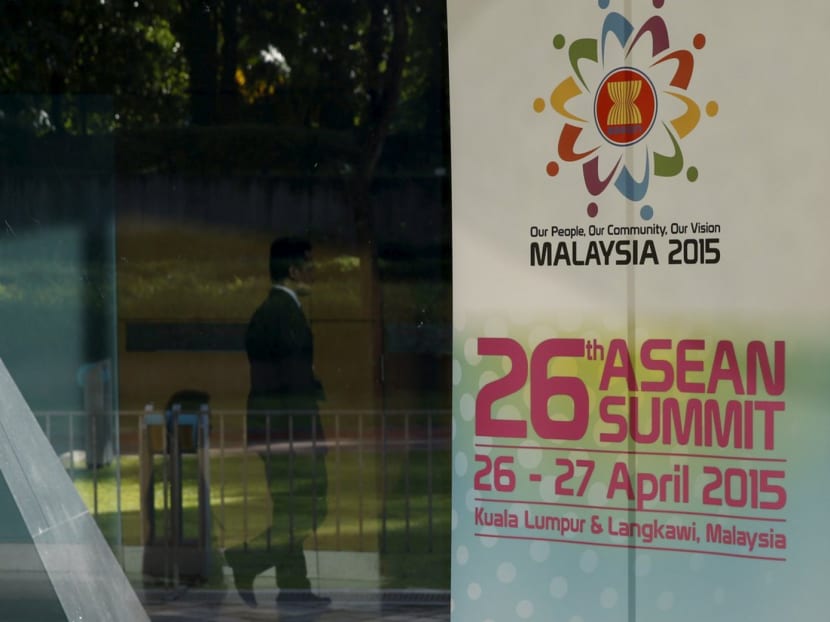No ASEAN consensus on Chinese reclamation
LANGKAWI — Association of South-east Asian Nations (ASEAN) leaders agreed yesterday to step up efforts to combat the twin threats affecting stability in the region — the South China Sea situation and Islamic State militants — but consensus to take China to task over its recent spate of reclamation work in the disputed waters in the Spratly Islands continues to elude the regional bloc.
LANGKAWI — Association of South-east Asian Nations (ASEAN) leaders agreed yesterday to step up efforts to combat the twin threats affecting stability in the region — the South China Sea situation and Islamic State militants — but consensus to take China to task over its recent spate of reclamation work in the disputed waters in the Spratly Islands continues to elude the regional bloc.
Speaking to reporters last night after a leaders’ informal retreat, Prime Minister Lee Hsien Loong said progress has been made on a code of conduct in the South China Sea, but as is the nature of these discussions, things will take time.
“Of course, the sooner we can get them (the code of conduct discussions) done, the better. But to get them done sooner, all the parties have to agree it has to be done sooner and it is not clear that all the parties want to do it as soon as possible,” said Mr Lee.
The Prime Minister also said more needs to be done to deal with the ideological threat posed by the Islamic State and ensure that people who have been radicalised are “rehabilitated and reintegrated into society”.
At the 26th ASEAN Summit, the Philippines and Vietnam have publicly called out China over what they claim to be encroachment into their territory in the South China Sea, but Malaysia, as current Chair of the grouping said South-east Asia sought to continue to engage with their large northern neighbour in a “constructive” manner, said a Kyodo News report.
Philippine President Benigno Aquino said China’s reclamation activities around reefs in the Spratly archipelago “pose a threat to the security and stability in the region, cause irreparable damage to the marine environment and threaten the livelihood of many of our people”, reported Kyodo News.
But in a press conference at the end of the leaders’ plenary session yesterday morning, Prime Minister Najib Razak noted that “ASEAN’s non-confrontational approach has been very effective in ensuring that there will be no rising tension in this region”.
“China understands our position and we hope to be able to influence China that it is also to their interest not to be seen as confronting ASEAN, and any attempt to destabilise the region will not benefit China either,” Mr Najib added.
During the leaders’ retreat later in the day, Mr Lee pointed out that “ASEAN has a role to keep the temperature down”. He also reminded his counterparts the importance of ensuring that rights to freedom of navigation and overflight are not jeopardised in the waters.
China is claiming a large part of the sea in a move that could affect freedom of navigation in waters where up to 50 per cent of global oil tanker shipments pass. Its claims overlap with those by Brunei, Malaysia, the Philippines, Vietnam and Taiwan. Recent reclamation works by China to build an airstrip suitable for military use in contested territory has sparked concern in the region.
On combating Islamic militancy, Mr Lee said during the retreat that this was a challenge common to all ASEAN countries. In particular, many people from South-east Asia have been taken in by the “slick propaganda” of the Islamic State. “We need to cooperate more closely through security action and intelligence sharing, to apprehend and pre-empt would-be terrorists,” said Mr Lee in the closed-door retreat meeting with the other leaders.
ASEAN has not been spared from the global spectre of the Islamic State. At least 500 Indonesians have joined the Islamic State and up to 150 Malaysians are fighting for the militant group. A handful of Singaporeans have also been linked to the extremist organisation.







